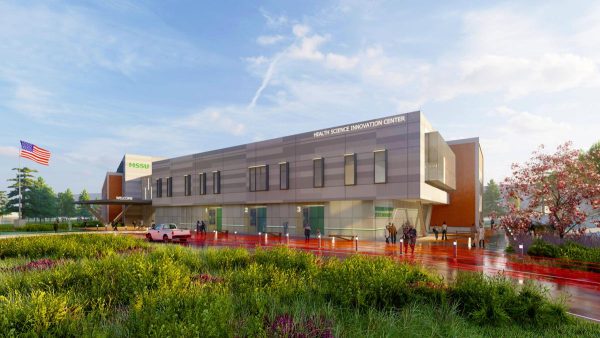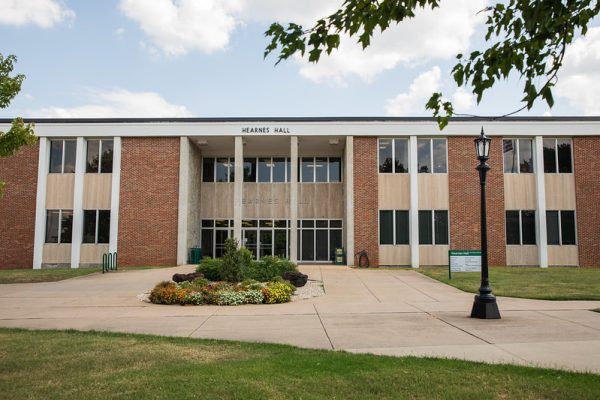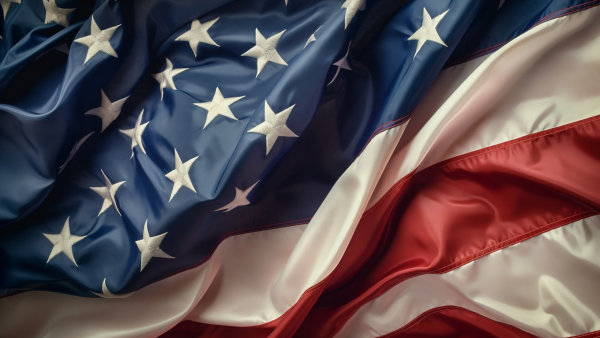No Simple Solution
After the Joplin Interfaith Coalition panel dismissed, student rabbi Samantha Schapera stuck around to socialize. It was then she was confronted with the news people had been killed inside the Tree of Life synagogue in Pittsburgh.
Her first reaction? Shock.
Next, came the itch to know more about the situation, though it was only breaking news at that point. Most other local faith leaders did not hear about the event until later in the day.
“I think this time it hit a little closer to home,” said Schapera, Hebrew Union College Jewish Institute of Religion Rabbinical student in Cincinnati.
As more details came to light, the Anti-Defamation League (ADL) released a statement confirming that this was the deadliest attack on Jews on U.S soil.
“Unfortunately, this violence occurs at a time when ADL has reported a historic increase in both anti-Semitic incidents and anti-Semitic online harassment,” said Jonathan A. Greenblatt, CEO of the ADL, in his official statement. “As we mourn those lost and search for answers, ADL will remain steadfast in its mission to fight anti-Semitism wherever and whenever it may occur.”
Soon after the attack, President Donald Trump brought up the gun issue. Schapera does not believe having more guns is the solution to violence.
“I would be very hesitant to say that there is one quick fix solution to a problem like this, because this is a much deeper issue than simply gun violence,” said Schapera. “I don’t think that the answer to guns is more guns, but I do think there is something to be said about being vigilant and being aware of our surroundings.”
The victims of the attack range from 54 to 97. The synagogue’s involvement with the Hebrew Immigrant Aid Society, an American non-profit organization that provides humanitarian aid and assistance to refugees, was also what appears emboldened Bowers to commit the crime.
Helping immigrants is a core value of Judaism, explained Schapera.
She argues ignorance and fear of “the other” to be the main factor into violent acts like the one in Pittsburgh. A long history of anti-Semitism and scapegoating also plays a role.
“I think there is a human need to find one solution or one fix to the problem,” said Schapera. “If we target one group of people, that seems very simple. But the world doesn’t work like that and I think it stems from lack of knowledge.”
When the white supremacy marches took place in Charlottesville in 2017, Schapera found hope from the outcry of anger, which provided tangible proof that the country is at a significantly better place compared to seven or eight decades ago.
“There was a pretty large national consensus that this was wrong and the fact that people felt safe enough to speak out against it and to say, ‘this is not our America,’” said Schapera.
There has been no shortage of kindness toward the Jewish community in the wake of the Pittsburgh attack, as shown by faith communities in Joplin and the broader community of faith in the United States.
Next week, Americans will file into voting booths, participating in the midterm elections. For those individuals, Schapera has one thing to ask–vote.
“That is something that we can actually do when we feel helpless,” said Schapera. “That is a power that we have, so please vote.”
In Cincinnati, Schapera and her fellow peers have participated in many memorials and vigils in honor of the victims. One of the songs that stuck out to her was about spreading love amid hatred.
“Olam Chesed Yibaneh,” by rabbi Menachem Creditor was written in the wake of 9/11. The English translation is titled, “We Will Build This World with Love.”
“We start the process by loving each other, by understanding each other, by talking to each other,” said Schapera. “God will also help build this world with love, but it begins with us.”
Members of the United Hebrew Congregation will say prayers for the shooting victims during the Friday, Nov. 2, service, which takes place from 7:30 to 8:30 p.m., at the synagogue, located at 702 South Sergeant Avenue in Joplin.
Your donation will support the student journalists of Missouri Southern State University. Your contribution will allow us to purchase equipment and cover our annual website hosting costs.





























